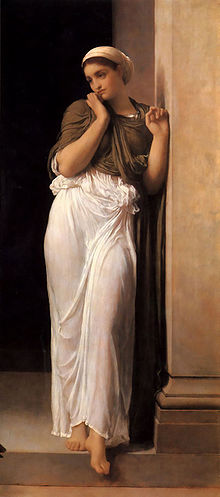
Notes on Elaine Scarry, On Beauty and Being Just, Part One
Scarry talks mainly about what beauty does. It “brings copies of itself into being.” And so forth. This makes it sound as it beauty is a thing, a property of some sort that has causal effects. This is, to be sure the standard way of thinking about beauty by Plato and other realists. But does Scarry really commit herself to this realist position? If we read carefully we will note that right at the outset, in the first sentence of the book, she asks “What is the felt experience of cognition at the moment one stands in the presence of a beautiful boy or flower or bird?” The felt experience is obviously not to be identified with what is experienced. The felt experience is in us, the beautiful flower is in the garden or meadow. So when she proceeds to talk about “beauty,” if she is really talking about our felt experience of beauty, she is talking first and foremost about what happens in us when something strikes us as beautiful. And to that extent she need not be committing herself to the independent reality of beauty.
This means that all the things she says beauty does need only be things that happen in us when we see something that comes across to us as beautiful.
This puts an entirely different color on all that follows. Instead of a rather mysterious set of claims about what real beauty does or doesn’t do — mysterious because it isn’t clear why beauty would do them — we have a set of claims about what we are impelled to do when we see beautiful things. These claims aren’t mysterious at all, because they concern the many desires that spring directly or indirectly from the delight we take in the beautiful thing. Suddenly we can see why it all hangs together. The things Scarry cites about our beauty related activities are natural derivatives from the original beauty-feelings we have for the object. We can organize the derivatives in terms of how closely they are related to the primal experience, somewhat as follows.
1. Primal experience: I see a beautiful young girl (Nausicaa, say, in the Odyssey) and am enraptured by her beauty.
2. First derivative: I want to go on looking at her, to see the beauty more fully and for a longer time.
3. Second derivative: (a) I want to celebrate her beauty by expressing my delight, and (b) I want to share the delight in her beauty with friends who can appreciate it.
3. Third derivative: If the setting is deficient, I want to improve it to set off her beauty better.
4. Fourth derivative: If it or the experience is fugitive, I want to replicate the beauty in those of the various ways that will best preserve or enhance my pleasure in her beauty.
5. Fifth derivative: I want to dwell upon the beauty so as to see what features make the beauty so great, in the hope of increasing my delight and gaining as intimate a knowledge of the beauty as I can.
6. Sixth derivative: I want to make myself as beautiful as I can to make myself as worthy a companion of her beauty as is possible.
7. Seventh derivative: I want to experience other beauties equal to and even superior to her beauty, in the same and in different categories.
Of course not all of these desires will grab everyone who is enthralled by the beauty of a person. All that need be claimed is that there is a natural tendency in their direction which in favorable circumstances will produce the desire. The working out of the facilitating and inhibiting conditions for these derivative desires will add up to a psychology of beauty. Not surprisingly the whole story will be quite complex.
